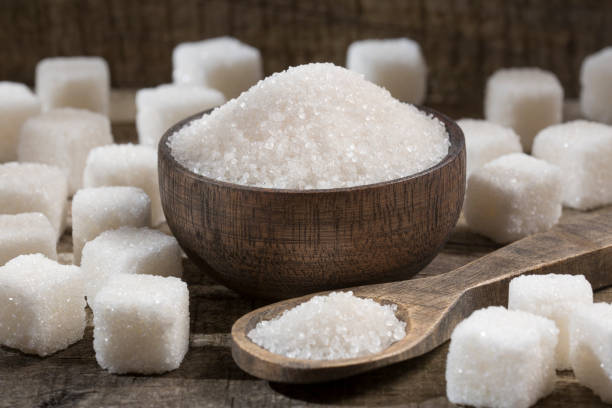Sweet Deception: The Truth About White Sugar
White sugar, also known as granulated sugar or table sugar, is a ubiquitous sweetener found in countless foods and beverages. Its pure white appearance and sweet taste make it a seemingly innocent addition to our diets. However, a closer look reveals a more complex picture, one that raises concerns about its impact on our health.
What is White Sugar?
White sugar is derived from sugarcane or sugar beets. The extraction process involves crushing the plants, extracting the juice, and then refining it to remove impurities and create pure sucrose. This sucrose is then crystallized, dried, and granulated to produce the familiar white crystals we use in our kitchens.
The Impact on Our Bodies:
While sugar provides a quick source of energy, its effects on our bodies can be far-reaching and potentially detrimental:
- Empty Calories: White sugar provides calories without essential nutrients like vitamins, minerals, or fiber. These “empty calories” can contribute to weight gain and nutrient deficiencies.
- Blood Sugar Spikes and Crashes: Consuming large amounts of sugar leads to rapid spikes in blood sugar levels, followed by a subsequent crash. These fluctuations can cause energy dips, irritability, and cravings for more sugar.
- Increased Risk of Chronic Diseases: High sugar intake has been linked to an increased risk of several chronic diseases, including:
- Type 2 Diabetes: Frequent blood sugar spikes can lead to insulin resistance, a key factor in the development of type 2 diabetes.
- Heart Disease: Excessive sugar consumption can contribute to factors like high blood pressure, inflammation, and unhealthy cholesterol levels, all of which increase the risk of heart disease.
- Obesity: The excess calories from sugar can lead to weight gain and obesity, which is a risk factor for various health problems.
- Tooth Decay: Sugar is a primary fuel source for bacteria in the mouth, which produce acids that erode tooth enamel and cause cavities.
- Impact on Gut Health: High sugar diets can disrupt the balance of bacteria in the gut, potentially leading to inflammation and other digestive issues.
Hidden Sugars:
A significant challenge in managing sugar intake is the prevalence of hidden sugars in processed foods. Many packaged foods, sauces, drinks, and even seemingly healthy items like yogurt and granola bars contain added sugars. It’s crucial to read food labels carefully and be aware of different names for added sugars, such as:
- High fructose corn syrup
- Sucrose
- Glucose
- Fructose
- Dextrose
- Corn syrup
- Fruit juice concentrate
Making Healthier Choices:
While completely eliminating sugar from the diet may be challenging, making conscious choices to reduce intake can significantly benefit health:
- Limit Processed Foods: Focus on whole, unprocessed foods like fruits, vegetables, whole grains, and lean proteins.
- Read Food Labels: Pay attention to the “added sugars” content on nutrition labels.
- Choose Natural Sweeteners in Moderation: Opt for natural sweeteners like honey, maple syrup, or fruit purees in small amounts. Remember that these still contain sugar and should be consumed mindfully.
- Hydrate with Water: Replace sugary drinks like soda and juice with water.
- Be Mindful of Portion Sizes: Even natural sugars should be consumed in moderation.
Conclusion:
White sugar, while providing a momentary sweet taste, can have significant negative impacts on our health when consumed in excess. By understanding its effects and making informed choices about our diet, we can reduce our sugar intake and promote overall well-being. It’s about moderation, awareness, and prioritizing whole, unprocessed foods.



